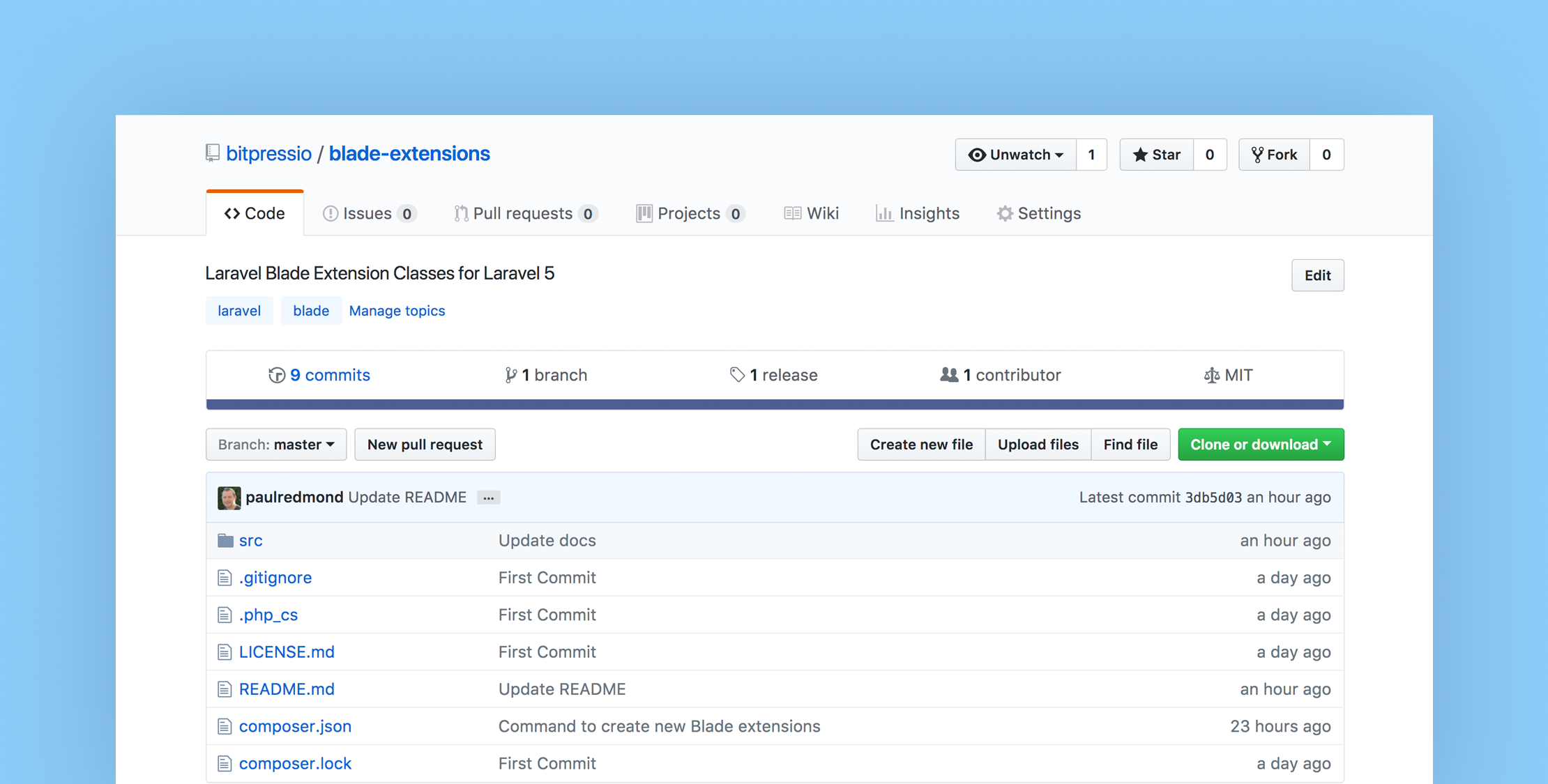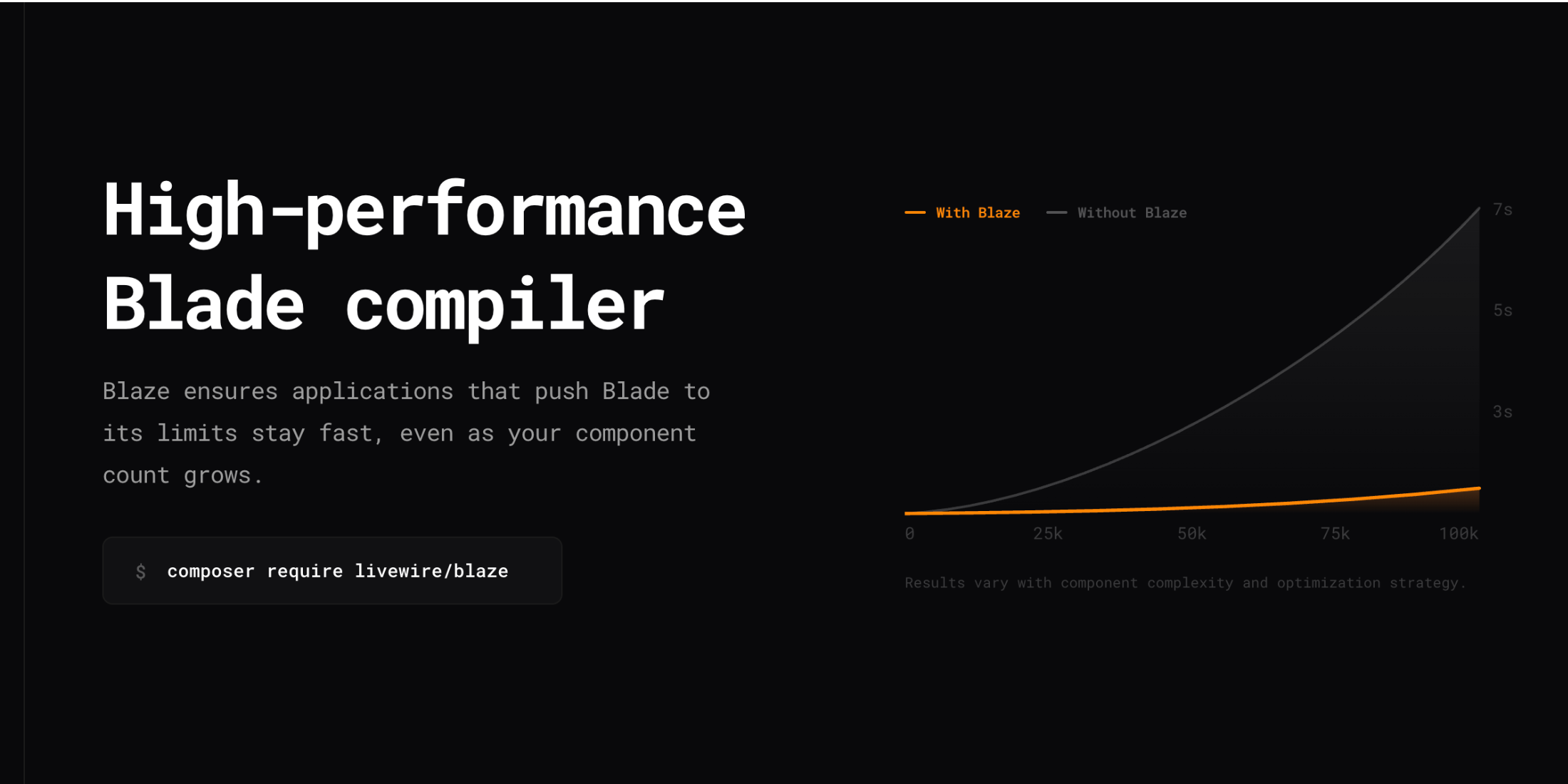I created a Blade Extension package that allows you to register Blade extension classes in the service container that automatically get registered with the Blade compiler. You can also easily create new Blade extension classes with the provided php artisan make:blade command (auto-registered package commands FTW).
The concept isn’t revolutionary by any means, but I like how it organizes my project-specific blade extensions into service container classes.
Let’s say, for example, that you have some custom directives around working with a shopping cart. Here’s a quick example of how it might look using my Blade Extensions package:
<?php namespace App\Blade; use BitPress\BladeExtension\Contracts\BladeExtension; class CartExtension implements BladeExtension{ public function getDirectives() { return [ 'cartcount' => [$this, 'getCartCount'] ]; } public function getConditionals() { return [ 'cartempty' => [$this, 'isCartEmpty'] ]; } public function getCartCount() { // logic to return cart count } public function isCartEmpty() { // logic for empty cart }}The above extension would provide the following directives in blade:
{{-- Conditional --}}@cartempty <p>The cart is empty</p>@else <p>The cart is not empty</p>@endcartempty {{-- Directive --}}<span class="count">@cartcount</span>It’s nothing special—it’s just PHP callables—but I like the feel of a dedicated class that can benefit from injecting services (i.e. a cart service) and keeping these related extensions grouped in one file.
If I need to add additional directives for the shopping cart, all I need to do is update the getDirectives() method and define the associated callable.
You might find it interesting how this package’s service provider hooks into the Blade compiler. It’s pretty simple: the boot() method just gets all services tagged with blade.extension and registers the directives in the compiler.
// In the BladeExtensionServiceProvider::boot() methodforeach ($this->app->tagged('blade.extension') as $extension) { if (! $extension instanceof BladeExtension) { throw new InvalidBladeExtension($extension); } foreach ($extension->getDirectives() as $name => $callable) { $this->app['blade.compiler']->directive($name, $callable); } foreach ($extension->getConditionals() as $name => $callable) { $this->app['blade.compiler']->if($name, $callable); }}The Blade Extensions package makes it easy to both create and register blade extensions in the service container:
php artisan make:blade CartAnd this is how you register it (it also tags the service) with the provided BladeRegistrar class:
use App\Blade\CartExtension;use BitPress\BladeExtension\Container\BladeRegistrar; // ... BladeRegistrar::register(CartExtension::class, function () { return new CartExtension();});You can also use a provided helper method instead if you prefer:
blade_extension(CartExtension::class, function () { return new CartExtension();});Essentially this is what the BladeRegistrar does for you:
$this->app->singleton(CartExtension::class);$this->app->tag(CartExtension::class, 'blade.extension');Learn More
This package is inspired the way Twig extensions get created and registered in a Symfony project.
To get started, check out the GitHub project for complete installation instructions and workflow for creating your Blade extensions in Laravel applications.
You can install the Blade Extensions package with:
composer install bitpress/blade-extensions










